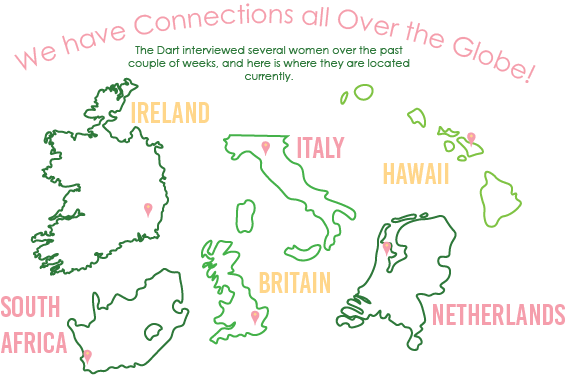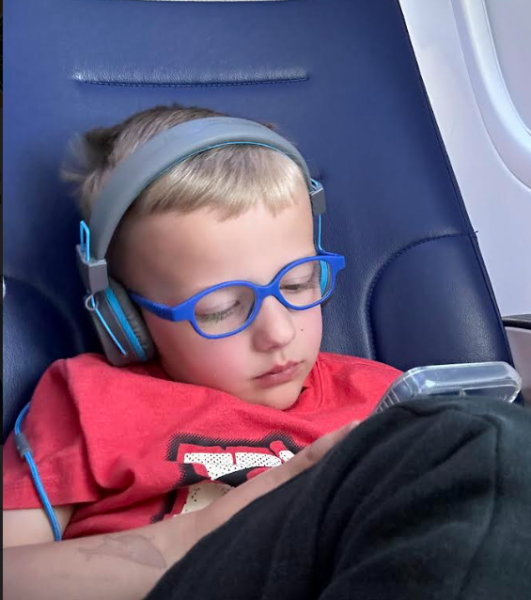Corona phobia
With the Coronavirus spreading from the Wuhan province in China to the United States, there is a rise in fear and misinformation, directed toward the East Asian community specifically.
March 10, 2020
Sixteen year old Angie Yang’s life in Shenzhen, China was not so different than that of an STA student. She woke up, went to class, went to the gym and did homework during the week. On weekends, she laughed, detailing late nights out with her friends.
For Yang, this is no longer her life. Her school was supposed to begin again following the Chinese New Year Feb. 3. Instead, the Coronavirus outbreak occurred, and her school is now completely online.
According to the New York Times, the Coronavirus is named for the crown-like structures that take place atop the microscopic parasites that create viruses. It can affect animals and people and can exhibit itself in a range of respiratory illnesses, from the common cold to Severe Acute Respiratory Syndrome, also known as SARS. The virus originated in Wuhan, China and has spread to around two dozen countries.
Those late nights are no longer part of Yang’s life, following the outbreak of the Coronavirus.
“I go to an international school, so all of my friends are from America, or India, or Brazil; just like an international collection of students,” Yang said. “They’ve all returned to their hometown.”
With her friends leaving the country and online classes, Yang has not left her home for more than a meal or a short jog in more than three weeks.
“I don’t have any reason to go outside, so it’s all at home by myself,” Yang said.
Prior to her school postponing their return from break, Yang had heard about the Coronavirus through a fellow student whose mother had contracted the illness while teaching in Wuhan. The school began to host a series of fundraising activities to help cover the mother’s medical fees.
“We did a volleyball marathon, where the tickets were 100 RMB,” Yang said. “We got students to come and pay and all of the profits go towards her mom.”
100 RMB is approximately 14 American dollars.
Prior to personal contact, Yang and her peers were most concerned about the magnitude of the virus.
“Like everyone else, we all crossed our hearts and hoped it wasn’t as big as a SARS outbreak,” Yang said. “We just thought it was a rare occurrence until there were more records of more cases being reported, and it started spreading out of the epicenter.”
Senior Annie Riffel and her family feared infection when their father returned from a business trip to China. While on the two-week trip, Riffel’s father met a colleague from Wuhan. Upon returning to the United States, he went to the doctor’s office to get tested for the virus. Soon after returning, the Riffel family found themselves semi-quarantined within their home.
“It was really scary at first because the doctor told us that no one could leave the house until we got the test results back,” Riffel said. “We didn’t really know what to expect, because if my dad had it there was a high chance we could’ve had it as well.”
Because the disease originated in China, the discourse surrounding the virus has taken an arguably xenophobic tone according to Forbes. This xenophobia, meaning a dislike or animosity towards foreigners, was exhibited in west London, when an East Asian man named Pawat Silawattakun was mugged and beaten, while his attackers yelled “coronavirus” and filmed him.
Senior Trang Nguyen also heard about the virus through the news, but like Yang, believed it to be a minor virus.
“Initially, I thought it would be a smaller outbreak,” Nguyen said. “But now it is becoming a big deal.”
While not all of the discourse surrounding this disease is quite so violent as what Silawattakun experienced, it is still one centered around Asian people and their immigration or visitation to the country.
Nguyen is Vietnamese, and while she has not dealt with any certain outbursts, she recalls her friend Aaron Le’s experience while shopping.
“He was in a market, and he literally coughed,” Nguyen said. “A bunch of people walked away like, really quickly.”
Nguyen’s life in America has not included blatant racism and xenophobia, but the spread of the Coronavirus reminds her of an unfortunate aspect of her East Asian heritage: being treated as one homogenous culture.
“There is a specific difference, and it is a big difference,” Nguyen said. “People generalize and say things like ‘Hey, do you speak Asian?’ and I’m like…no.”
Nguyen met a woman who was advocating for immigrant rights and was subjected to such treatment while discussing the right to come into the country.
“She was talking about how it was important that everyone has the right to come to America and get the opportunities,” she said. “She looked at me and said ‘for Chinese people too.’”
This generalization leads to the misbelief that all Asian people are carriers of the Coronavirus.
“There is a misconception because it started in China,” Nguyen said. “People think that all Asian people have the disease.”
Mandarin Chinese teacher Chiun-Pei Lin has been in the United States for 15 years and first heard about the Coronavirus, also known as COVID-19 from an online Taiwanese news channel. She worries that the rise of the Coronavirus is bringing back the xenophobic mentalities that have led to harsh legislation in the past.
“Covid 19 brings Chinese Exclusion back,” Lin said, referencing the Chinese Exclusion Act passed in the 19th century that banned Chinese immigrants from entering the country. “You can see it in the news, social media, and among people.”
Lin has held discussions with her own students about the racism and xenophobia stemming from the Coronavirus and sought to ensure her students understood the facts of the virus. She hopes that this can lead to viewing the virus through a non-xenophobic lens.
“I hope students understand that we need to fight the virus, not {the} Chinese,” Lin said. “No one wants to be sick. Any of us can be a victim of COVID-19.”








